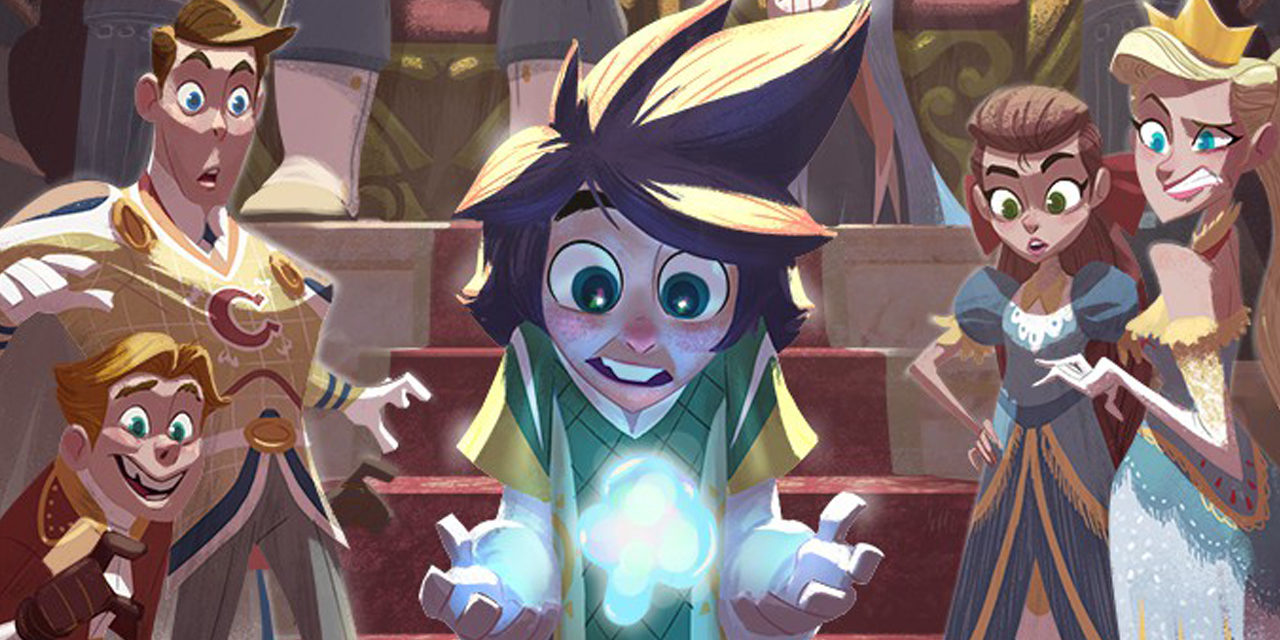WildBrain, a Canadian media company, has announced the production of a new cartoon series, Princess Alexander, that “targets kids ages six to nine and is an allegory for LGBTQ+ acceptance.”
According to Kidscreen, a magazine for children’s entertainment professionals, “Princess Alexander focuses on themes of sexuality and gender, and revolves around a young prince who realizes he has magical powers that have traditionally been exclusive to princesses, while possessing none of the natural skills that princes are supposed to have.”
The creator of the show is Mike Vogel, a gay-identified man who told Kidscreen that the show was inspired by his own childhood struggles about “who he was and how he should act.” Vogel has an extensive background in animated children’s shows, working as a writer, developer and creative supervisor on shows such as G.I. Joe: Renegades, Transformers: Robots in Disguise and My Little Pony: Friendship Is Magic.
Vogel began working with WildBrain in 2018 and leads the company’s production of Inspector Gadget and Strawberry Shortcake. According to Kidscreen, “Vogel has always wanted to see more LGBTQ+ representation in kids animation, and he’s excited about creating a show that could help the world change and develop tolerance, reflecting how the main character begins to accept himself.”
WildBrain has a huge entertainment reach, as it owns four children’s channels in Canada, including The Family Channel and Disney Junior. The company also owns a major stake in the Peanuts franchise, and it produces content for Amazon Video Direct and YouTube. The company says its WildBrain Spark network “has over 145 million subscribers, and generated over 183 billion minutes of watch time across 37 billion views from October 2018 to September 2019.”
Joannie DeBrito, Ph.D., is a Licensed Clinical Social Worker and Licensed Marriage and Family Therapist. As the Director of Parenting and Youth for Focus on the Family, she’s troubled by the increasing percentage of LGBT-identified characters in television and movies, and especially in programs geared toward children. GLAAD reports that a little over 10% of characters on primetime, scripted television programming are LGBT. The activist organization is pushing to see LGBT-identified characters increase to 20% on television by 2025.
By way of comparison, DeBrito pointed out that social research generally shows that somewhere between 1 to 5% of the population identifies as LGBT. She said higher numbers of LGBT characters on television give children and teens a distorted sense of reality, so it’s not surprising that more young people are questioning their sexuality or identifying as LGBT. Such programming may also give the impression that people are born gay, a notion that has been debunked by researchers.
Some of the shows are geared toward young children, who are impressionable and easily influenced to conform, DeBrito explained, saying that it’s easy to plant suggestions and thoughts in their heads. Children may then start experimenting with these ideas, often without understanding the consequences.
So how can parents respond when children are exposed to inappropriate and confusing entertainment? DeBrito offered some suggestions when kids ask questions or see something that contradicts their parent’s values. She says it’s important to relax and “resist the urge to panic.” She urged parents to encourage discussion, ask questions and listen.
Of course, the age of the child matters, and parents should keep their responses age appropriate. Small children don’t necessarily understand abstract concepts; they tend to move from concrete thinking to more abstract as they get older. Young children are observing everything around them; they’re curious, inquisitive and impressionable, DeBrito said.
She explained that very young children are easily troubled and confused by things that are different – like a cartoon about a boy who thinks he’s a princess – and may need comforting and simple explanations.
It’s also important to teach children God’s design for marriage and healthy relationships, and for parents to develop and model a healthy marriage. But DeBrito noted that it’s also necessary to talk with children about the components of a healthy relationship, such as dealing with conflict in healthy ways, talking things out, and finding safe people to connect with.
DeBrito urged parents to be “aware of what their children are watching,” especially since “some of these shows may teach some good values, but they’re wrapped in with LGBT messages.” She’s also concerned that many children are consuming too much media. “Get out and play!” she said.
Related articles and resources:
How to Talk to Your Children About Homosexuality
How To Teach Your Children About Marriage
Raising Children Who Honor Marriage
The Talk: Healthy Sexuality Education — Basic Goals and Guidance from Focus on the Family
When Transgender Issues Enter Your World
Plugged In – Focus on the Family’s guide to the world of popular entertainment.
Plugged In Parent’s Guide to Today’s Technology
Photo from Kidscreen






